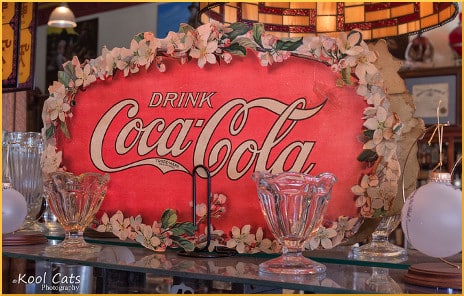
There seems to be no end to the shenanigans of Coca-Cola. Last time, Childhood Obesity News looked at an article written by Rick Docksai for Inside Philanthropy, but did not bring up every interesting facet of it. The title has a bit of an edge — “Guess Which Company Is Both Making Us Fat and Funding Anti-Obesity Efforts?” — but the piece is decidedly corporate-positive. Docksai says of Coca-Cola:
[O]n the obesity issue, it seems to take a localized, neighborhood-scale approach with its funding. It reaches out to the individual communities and finds partners within them who can work with it to achieve its anti-obesity goals.
For instance, the Community Foundation of Greater Atlanta received $1 million for nutrition education and leadership development, and Atlanta’s YMCA received $75,000 for fitness programs. In fact, since Georgia is the most obese state, its various community exercise and nutrition programs collected a total of $3.8 million.
All these activities carry an implicit message. As long as you eat some vegetables and work out every once in a while, then it’s OK to consume gallons of soft drinks every week. If you are overweight, it’s not because of the sugary drinks, but because you didn’t do enough sit-ups or eat the right kind of cucumbers. Obesity researcher Zoë Harcombe puts it this way:
Coca-Cola’s association with sport and slim, athletic looking people, reinforces their desired message — drink Coca-cola, exercise and you won’t get fat.
That was written in conjunction with Harcombe’s expressions of scorn for Coke’s close association with the most recent Olympics. These days, the corporation is very proud of itself for putting more than 180 low-calorie and no-calorie beverages on the market. Harcombe calls Coca-Cola’s public relations efforts manipulative and disgraceful, and detects conflicts of interest at every turn.
She mentions the sports nutritionist “recommended” by the corporation. Dr. Russell Pate holds the title of director of the Children’s Physical Activity Research Group, and believes strongly that “we will have to increase the physical activity level of our population if we want to overcome the obesity epidemic.” But he never proposes cutting out the sugar-sweetened beverages that infest the typical American’s diet. Harcombe says:
Surely Dr. Pate is bright enough to have worked out that it is better not to consume empty calories than it is to consume them and then try to work them off…. Dr. Pate should have declared that the University of South Carolina Department of Exercise Science, where he works, acknowledged in their spring 2011 newsletter…. ‘Recent new funding includes a large grant from Coca-Cola.’
Well, at least we know that Georgia was not the only state to benefit from the Coca-Cola Foundation’s munificence. Nor was Dr. Pate the only professional to reap rewards. Harcombe also mentions another of Coke’s tame medics, Dr. Steven Blair:
Blair’s loyalty to Coca-Cola has not gone unrewarded — he was a torch bearer at the London Olympics ‘recognized by Coca-Cola North America, one of the Olympic sponsors, for his “leadership in helping others live positively.” ‘
Coke has been a sponsor and supporter of the Association for the Study of Obesity in the United Kingdom, and of the British Nutrition Foundation. And then there’s the impressively named International Life Sciences Institute (ILSI) which claims in its literature to be a “neutral forum.” It is funded not only by governments and foundations, but by the beverage industry. ILSI boasts a 31-member board of trustees, of whom two represent Coca-Cola.
There is also, of course, the carbohydrate working group of the Scientific Advisory Committee on Nutrition, whose chair is Professor Ian MacDonald, who enjoys an intimate relationship with Coca-Cola Europe. Harcombe’s message is passionate:
Coca-Cola is part of the problem, not part of the solution. It is not Coca-Cola’s job to resolve the obesity epidemic. It is Coca-Cola’s job to maximise profit for shareholders. In the fight against the obesity epidemic, Coca-Cola is the enemy….
Your responses and feedback are welcome!
Source: “Guess Which Company Is Both Making Us Fat and Funding Anti-Obesity Efforts?” InsidePhilanthropy.com, 03/13/14
Source: “Coca-Cola, Obesity and Conflict,” ZoeHarcombe.com, 01/22/13
Image by Kool Cats Photography

 FAQs and Media Requests:
FAQs and Media Requests: 











